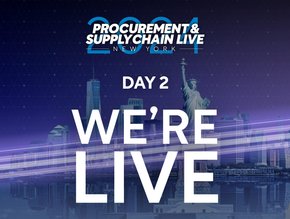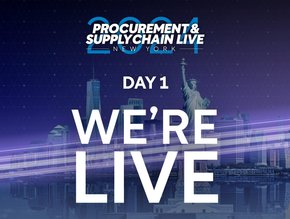California Scope 3 law has US supply chains on carbon alert

California's state Senate has approved a bill requiring large companies to report their carbon footprints, putting more pressure on them to clean up their supply chains.
The Emissions Disclosure Mandate Bill was supported by several large companies, including Apple, Ikea and Microsoft, but was opposed by others for the exacting demands it places on organisations. It comes into effect from 2027.
But with companies under mounting pressure from governments and shareholders to disclose their measures on cutting greenhouse gas emissions the bill has been rubber-stamped.
The legislation tackles one of the thorniest issues in climate regulation, by obliging companies to measure and report Scope 1, 2 and 3 emissions.
Greenhouse gas emissions are categorised into three groups, or 'Scopes'. Scopes 1 and 2 are emissions that are owned or controlled by a company.
As such, Scope 1 covers emissions from burning fuel in a fleet of vehicles, whereas Scope 2 are emissions a company causes indirectly, when the energy it purchases and uses is produced. Energy for an electric fleet of vehicles, for example.
But it is Scope 3 emissions that hold the key to making serious headway on reaching global net-zero targets by 2050. Scope 3 are emissions that are not produced by the company itself or a result of activities controlled by them, but emissions they are indirectly responsible for up and down its value chain. This includes the emissions of partner companies involved at any stage of production or processes.
Scope 3 emissions account fo 80-% of GHSs
For many organisations, Scope 3 comprises up to 80% of their Scope emissions; for large multinationals, in particular, where supply contains tens of thousands of vendors spread across the globe – many of which might be in developing countries and lack the technology or wherewithal to cut emissions without help.
Asked for his thoughts on the Bill, Misha Cajic – Co-Founder and Co-CEO of Avarni, Australia’s expert in emissions reporting – said: “The Bill reflects years of discussion and development in America around emissions reporting standards, driven by mounting pressure from venture capitalists, investors, and a heightened public discourse on environmental responsibilities. But, like with any major change, there will be opposition.
“In the long term, taking greater accountability by disclosing emissions is an essential step in meeting global net-zero targets and decarbonisation goals. America isn’t alone in its efforts to combat greenwashing and emissions reporting integrity, with Australian regulators and governments now seeking to establish their own mandatory reporting regimes.”
He added: “This is also in part due to a growing societal expectation for corporations to take greater responsibility for their contribution to global emissions, but pressure from the advancement of other nations like the US on carbon reporting requirements is also resonating strongly with local policymakers.
“This bill represents the first major step in addressing expectations around corporate decarbonisation efforts and will play a pivotal role in encouraging companies to meet reporting standards and customer, partner, supplier and community expectations.”
- Argon & Co: The EU Ban Forcing a Supply Chain RethinkSupply Chain Risk Management
- RELEX: Preventing Food Waste with Improved Demand PlanningSustainability
- Procurement & Supply Chain LIVE New York: Day 1Sustainability
- Boeing, DHL Group Among Firms Signed up to IATA SAF RegistrySustainability






